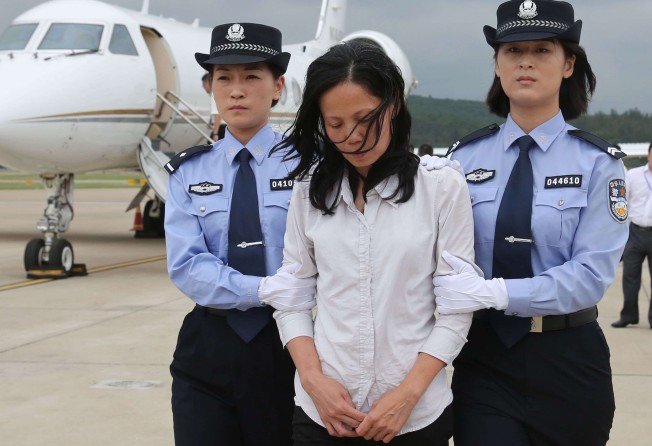Transparency key in fighting graft
Petty corruption often easier to identify and classify than sophisticated swindles

The daughter of Hong Kong’s chief executive leaves her carry-on bag behind, and airport security officials bring it to her as she boards an international flight. A local newspaper finds out, and the story splashes across the front pages with big headlines. Leung Chun-ying is asked to explain himself, legislators and aviation unions cry foul, internet users spew venom on social networks, and the incident gets dubbed “bag-gate”.
Hong Kong is one of the least corrupt places in the world, coming in 18th place out of 168 countries ranked by Transparency International. Does the citizenry’s intolerance for the little abuses of power help prevent the larger crimes? Recall, for example, the uproar when it was discovered that government officials had remodelled their homes without obtaining the proper permits and paying any relevant conversion costs.
One wonders if there is a “broken window” effect at play here, as in the theory first propounded by James Wilson, that if a broken window in a building is not fixed, then more will get busted, since it seems no one cares. Buildings in disrepair also attract larger crimes, like burglary. In the Netherlands, experimenters left a €5 note sticking out of a letterbox in a see-through envelope, and 13 per cent of those who passed took it. However, if the letterbox was sprayed with graffiti, then 27 per cent of passers-by pocketed the cash.
I asked Johann Graf Lambsdorff, who teaches economic theory at the University of Passau in Germany, and has worked on corrupt behaviour, whether intolerance of petty abuses of power was strongly correlated with lower overall corruption. As another example, Communist Party general secretary Xi Jinping’s corruption campaign in mainland China seeks to catch both the “tigers and flies”, and the latter goal has led to a severe curtailment of banquets and gift-giving by officials.
“The wining-and-dining issue is something special because it links a broken window with issues of reciprocity,” Graf Lambsdorff said. However, the correlation with larger corruption was surprisingly low. “Hardly ever is there a direct request to deliver something in return for a dinner,” i.e., to violate one’s duties in order to “reciprocate”.
In the corporate world, in recent years there has been much rhetoric about “zero tolerance” for even the most petty cases of corruption. The problem, Graf Lambsdorff said, was that petty corruption was often easier to identify and classify than sophisticated swindles, so the correlation was weak.
Grand corruption is less clear. It often involves intermediaries, and transfers via shell companies in countries with little banking regulation. Corrupt actors can diffuse their responsibility through these channels and claim ignorance of laws being broken.
“This then creates a bizarre hypocrisy,” Graf Lambsdorff said. “Turning a blind eye to the grand cases of corruption might even become a side effect of broken-window policies. Resources are thus better spent on frying the big fish.”
Based on this view, catching “tigers” in China is more important than swatting “flies”. In Hong Kong’s case, institutions such as the Independent Commission Against Corruption, with reasonably deep resources and big guns, have played an effective role in reducing corruption. Graft was much more common before the ICAC’s inception in 1974.
Transparency is another factor that correlates well with lower corruption (with a few exceptions). Uganda implemented a newspaper campaign against graft in education, and as a result lowered diversion of block grant funds to local schools from 80 per cent to 20 per cent.
A study in Brazil showed that elected officials who had acted with impropriety were less likely to get re-elected if their constituency was in a place where there was a local radio station to broadcast the deeds.
Information on corruption can come from many sources – judicial inquiries, government programmes, academic studies or surveys, citizen and pressure groups, and of course the press.
On the mainland, however, the anti-corruption campaign is controlled from the centre. Citizens, activists or journalists who independently identify or publicise corruption can face jail or other penalties, like losing their jobs. This must necessarily limit the scope of anti-corruption efforts.
Compare that to Hong Kong, where the fact that we have had one bag-gate means we are unlikely to have another. But without a free and lively press, we would never have had a bag-gate.
Cathy Holcombe is a Hong Kong-based financial writer